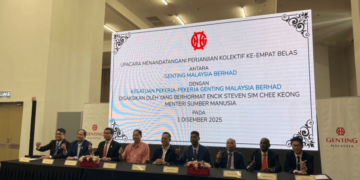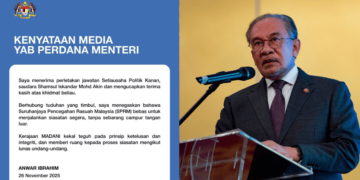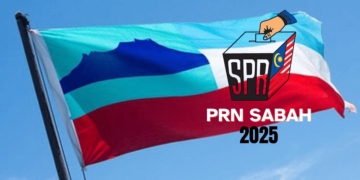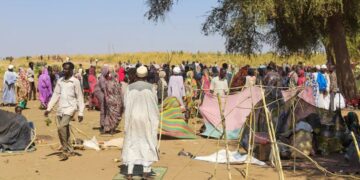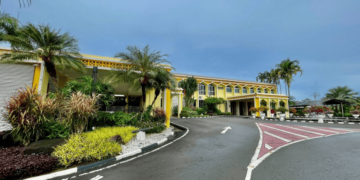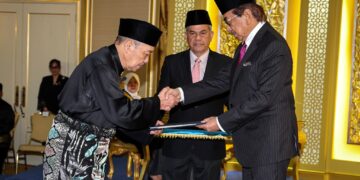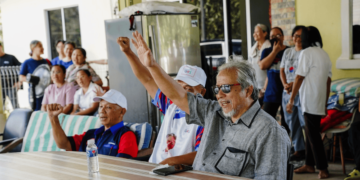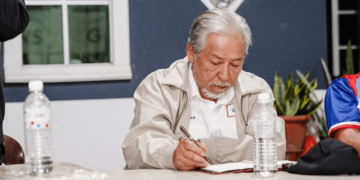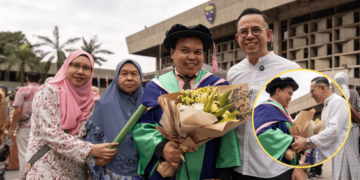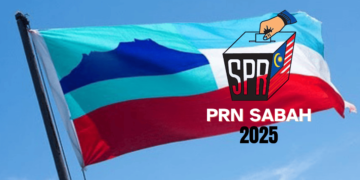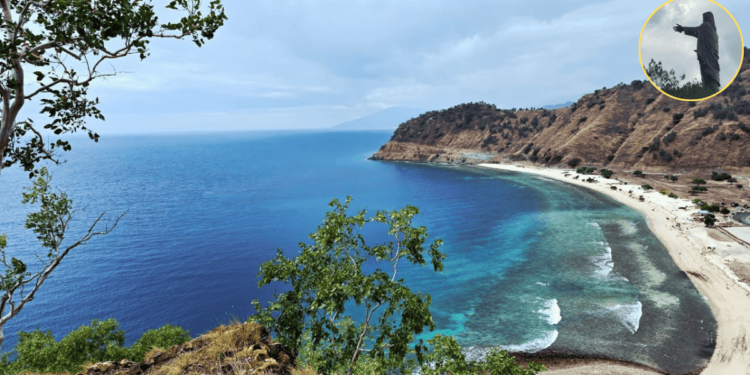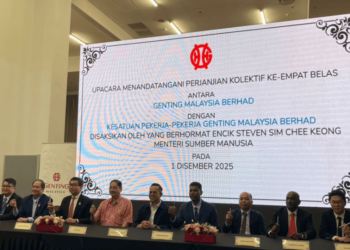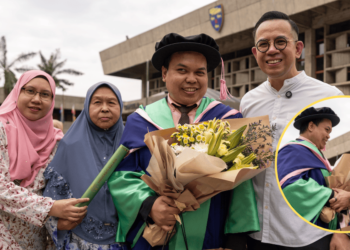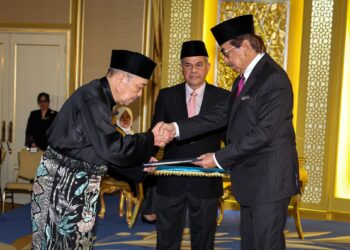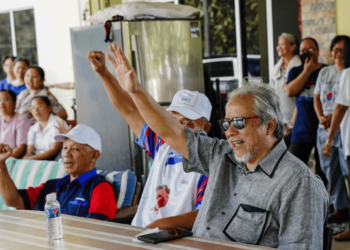In the endless chase of modern life, where clocks dictate every move and noise fills every silence, I boarded a plane to Timor-Leste, not entirely sure what I was looking for.
What I found was something rare.
Not just a new stamp on my passport, but a reconnection with everything that truly matters: simplicity, sincerity, silence, and stories.
Thanks to Batik Air’s newly launched direct flight from Kuala Lumpur to Dili, this once faraway destination is now just over four hours away. But when you land in Timor-Leste, you don’t just arrive in another country you arrive in a different state of mind.
The Warmest Welcome, from Sky to Soil
Our flight a milestone for Malaysian aviation was part of a fully sponsored media familiarisation trip. The aircraft, greeted by a water salute on the tarmac, felt like a symbolic embrace by the country itself: “Welcome, we’ve been waiting.”

Inside the modest but functional Dili International Airport, I wasn’t just greeted by officials. I was greeted by eyes kind, curious, deeply human. One of those pairs belonged to Datuk Amarjit Sarjit Singh, Malaysia’s Ambassador to Timor-Leste, who met me at the embassy not long after my arrival.
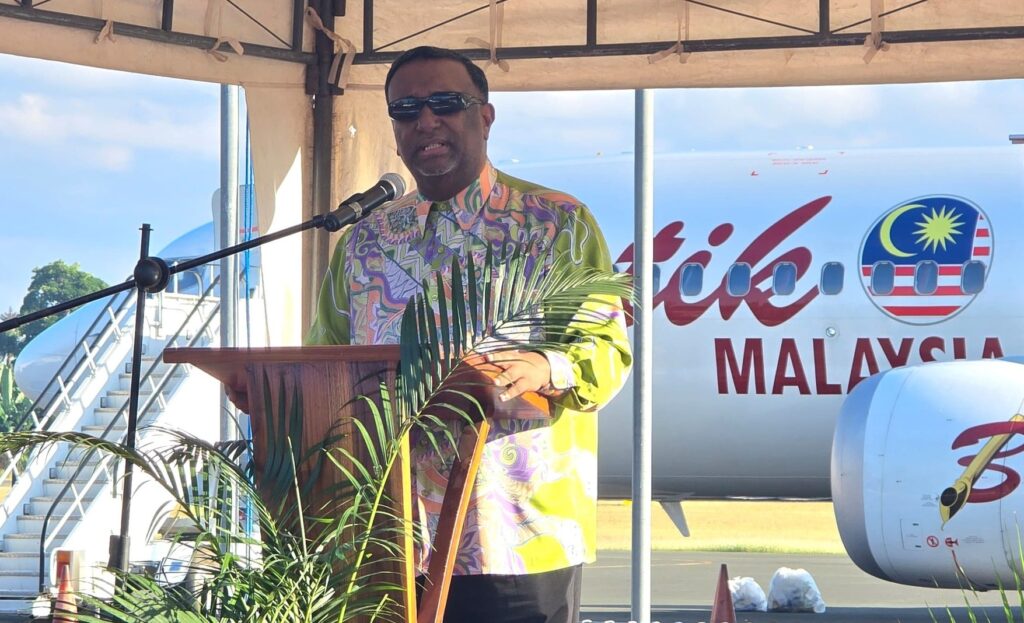
“Datuk,” I asked without filter, “is this country safe?”
His answer came without hesitation.
“Timor-Leste is one of the safest places I’ve served. There’s no organised crime. You’ll see for yourself. Don’t believe what you read online. You have to feel this place.”
And I did. With every passing hour.
A Land That Refuses to Rush
Dili, the capital, isn’t built to impress. There are no towering skyscrapers. No highways. No flashing billboards. But therein lies its magic. What it lacks in grandeur, it makes up for in soul.
This is a place where time takes its time.
Where people talk slowly and look you in the eye.
Where greetings are genuine and laughter is never forced.
In the dusty backstreets and roadside markets, no one shouts. No one hustles you. There’s rhythm, but no urgency. I found myself walking slower, breathing deeper, and for the first time in a long time listening more.
To the rustling of palm leaves. To the distant crash of waves. To the voice inside me that often gets drowned out back home.
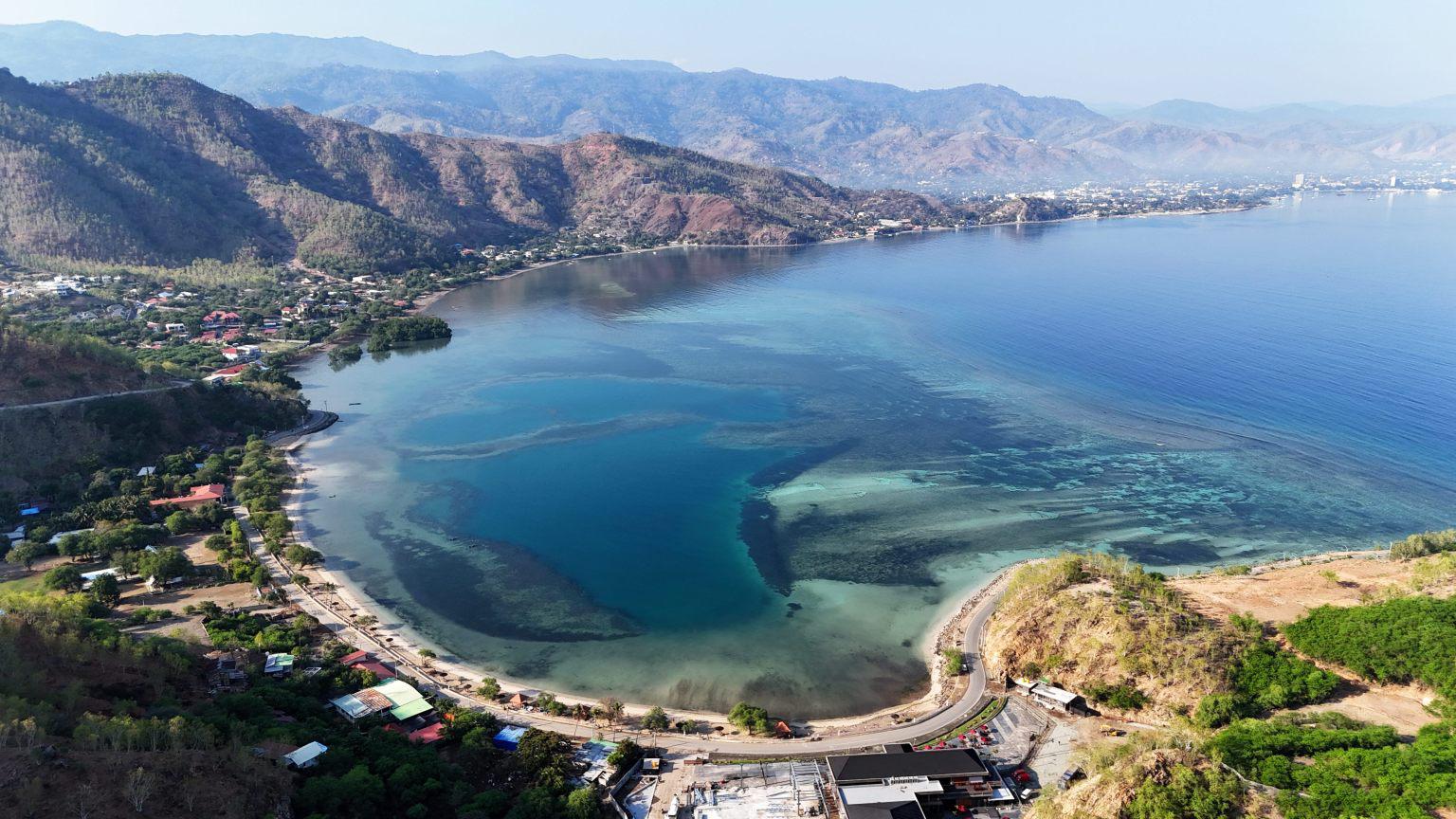
Currency of Connection
Of all the surprises Timor-Leste offered, perhaps the most jarring was this: the official currency is the US Dollar.
Yes, in a tiny Southeast Asian nation tucked between Indonesia and Australia, your nasi lemak budget will be calculated in greenbacks.

Introduced post-independence to stabilise the economy, the USD remains the de facto currency for everyday life, except for coins, which come in Timorese Centavos beautifully etched with cultural symbols, a small but powerful reminder that while the global economy may have arrived, identity has not been traded.
A Coffee Culture That Isn’t Trendy—It’s Sacred
In Malaysia, coffee is an aesthetic. In Timor-Leste, it’s an inheritance.
Up in the lush, cool hills of Ermera and Maubisse, coffee is grown not by corporations but by families. It is picked by hand, roasted over fire, and pounded with stone. I sat on the verandah of a wooden stilt house, sipping from a porcelain cup chipped at the edges, and I swear it tasted like earth, resilience, and grace.

This wasn’t a beverage. It was a bridge. Between generations. Between strangers. Between myself and a simpler way of living.
On Every Plate, a Story
Food in Timor-Leste is not flashy, but it is faithful to the land, to history, and to hunger.
The Portuguese colonial influence echoes through dishes like Feijoada, a hearty bean and meat stew, and Calulu, a rustic vegetable dish with hints of smoked fish. But local favourites steal the show Ikan Sabuko, grilled fish wrapped in banana leaves, spiced with coconut and turmeric, is a flavour that lingers long after the last bite.
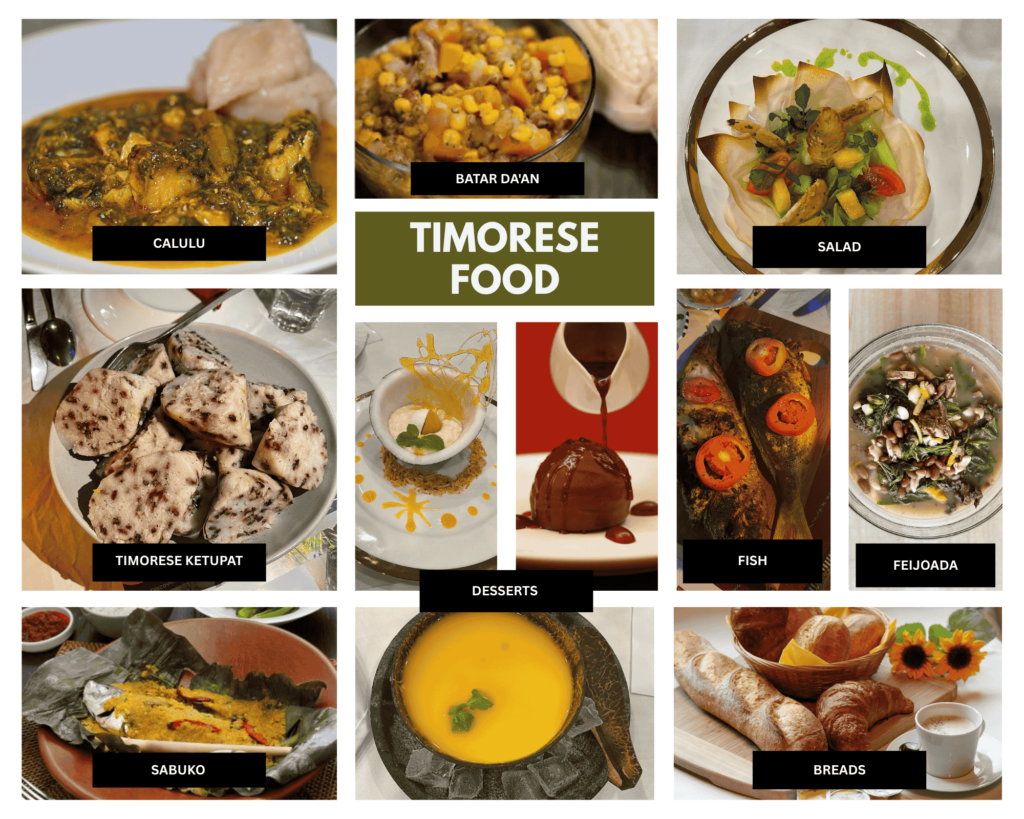
Street food? Think grilled corn on roadside pits, boiled cassava served with a smile, and handmade bread that smells of wood fires and early mornings.
No preservatives. No frills. Just nourishment.
Timorese Hospitality: As Real As It Gets
If you judge a nation by how it treats its strangers, Timor-Leste should be on a pedestal.
Language barriers here are real Tetum and Portuguese are official, while Bahasa Indonesia still lingers among the older generation. English is emerging, especially in tourism, but what truly breaks the silence is the language of warmth.
People smile with their whole faces. They wave without expectation. They try, earnestly, to communicate even if all they can offer is a hand to their heart and a nod that says, “You are welcome.”
The Land Itself Will Stop You Mid-Step
Everywhere you go, the scenery stuns you into silence.
In Cristo Rei, you climb 500 steps to meet a towering statue of Christ and are rewarded with a view of Dili Bay that humbles your soul.
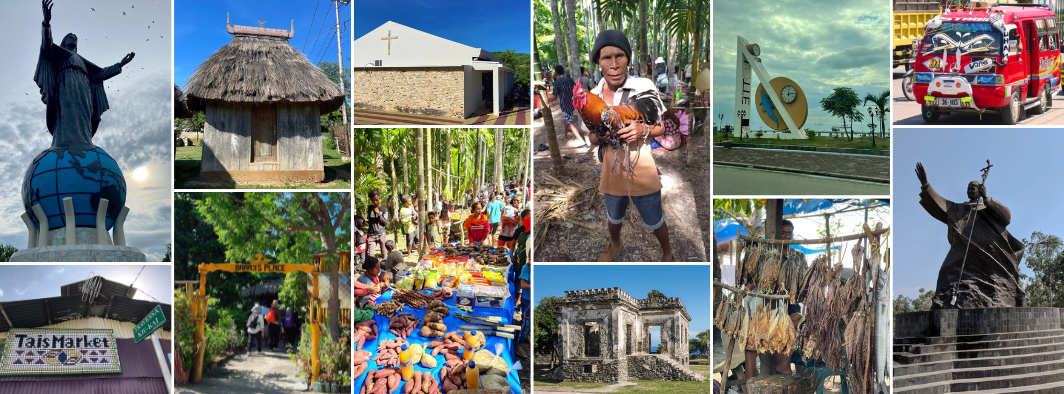
On Atauro Island, you snorkel in what feels like a private aquarium, with coral reefs so untouched, you start to feel like a trespasser in paradise.
In the highlands, you find Maubisse, Aileu, and Liquica villages where mornings come with mist, and nights with stars that don’t have to compete with neon.
Here, kids play barefoot in the mud. Women weave Tais cloth in silence. Men sit beneath trees, smoking hand-rolled cigarettes, watching time pass like a gentle breeze.

Places That Don’t Just Teach History They Make You Feel It
You can’t visit Timor-Leste without confronting its past.
The Resistance Museum tells the story of a people who fought for independence with everything they had. The Santa Cruz Cemetery, site of the 1991 massacre, still echoes with the cries of those who died for freedom. The Chega! National Centre, a converted prison, forces you to walk through cells that once held the dreams of the silenced.
These aren’t just museums. They are memorials of memory. And when you walk out, you carry a bit of their courage with you.
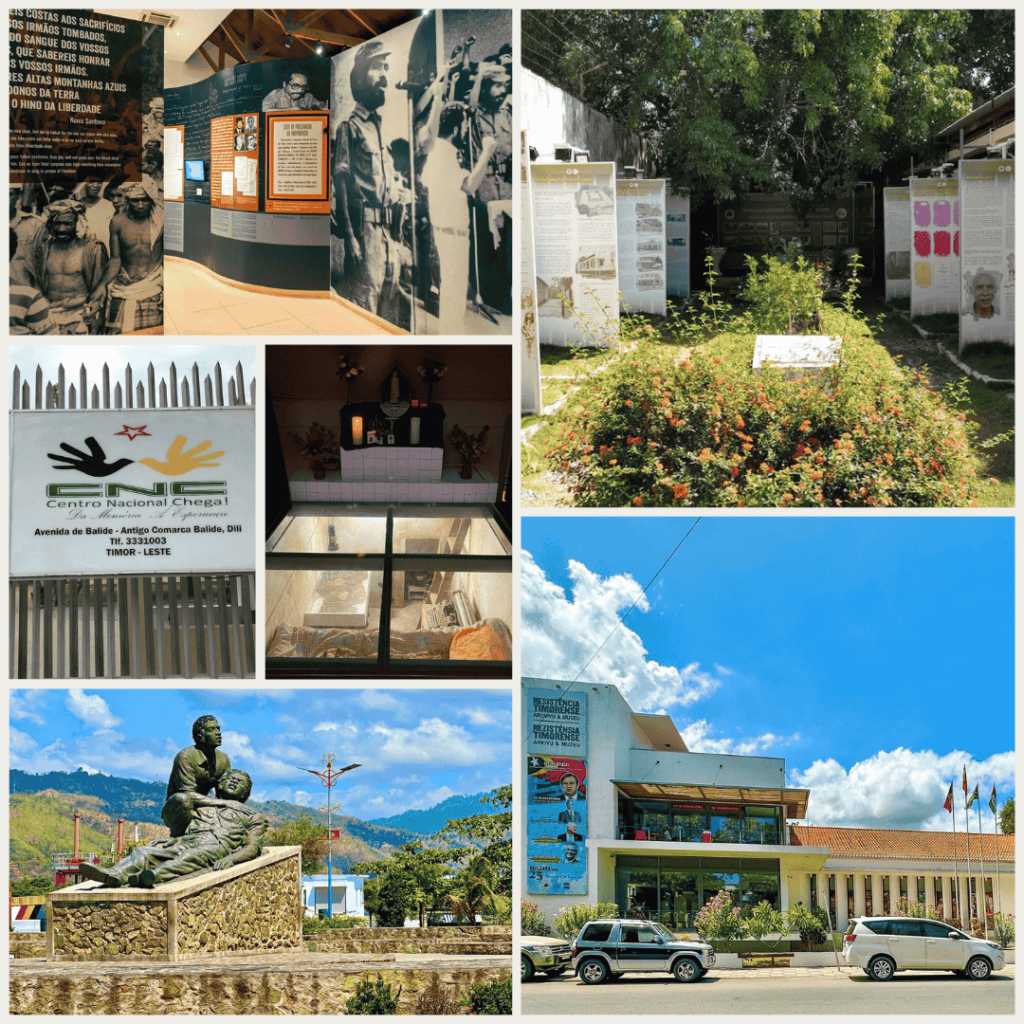
Batik Air: Not Just a Flight BUT A Lifeline
Batik Air now connects Kuala Lumpur to Dili twice a week. But this isn’t just a route; it’s a reconnection. A reconnection between two nations. Between the present and a forgotten past. Between your busy life and the world you forgot existed.

As Batik Air CEO Datuk Chandran Rama Muthy put it:
“This isn’t just tourism. This is a bridge between people, between hopes.”
Timor-Leste Doesn’t Need to Shout to Be Heard
While Bali booms and Bangkok dazzles, Timor-Leste whispers. And in that whisper is a calling gentle, honest, unforgettable.
It doesn’t try to impress you with luxury.
It invites you to experience dignity.
It doesn’t rush to build skyscrapers.
It preserves its mountains.
It doesn’t sell you perfection.
It offers you truth.
And if you’re ready for that kind of journey one that changes you in quiet, permanent ways Timor-Leste is waiting.
Not forever.
But long enough for you to hear the whisper, and to follow it home.
Travel notes & Practical Tips
Getting there: Batik Air (batikair.com.my) operates direct flights twice weekly (Monday and Friday) to Presidente Nicolau Lobato International Airport from KLIA Terminal 1.

Where to stay: Palm Springs Hotel Dili, Hotel Timor, Beach Garden Hotel, Timor Backpackers (Budget), Dari Retreat Cafe, Novo Turismo Resort And Spa, JL World Hotel Dili, The Plaza Hotel and many more.
• Currency: US Dollar is the official currency.
• Language: Tetum and Portuguese are official. Bahasa Indonesia is widely understood. English is emerging.
• Transport: Dili has taxis and private hires. Long-distance travel requires a 4WD.
• Wi-Fi: Available in hotels and cafes, but don’t expect high speeds everywhere.
• Safety: Very safe, even for solo female travellers. Just exercise normal caution.
More information: Find out more about Timor-Leste at www.timorleste.tl.
-MalayaDailyToday


